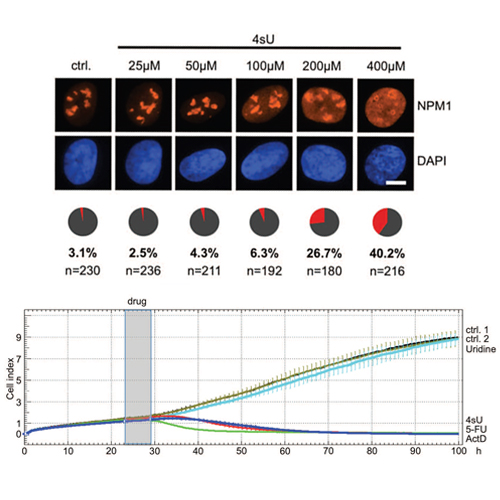4-thiouridine inhibits rRNA synthesis and causes a nucleolar stress response
01-Oct-2013
RNA Biology, 2013, 10.4161/rna.26214, Volume 10; Issue 10; 1623 - 1630 published on 01.10.2013
RNA Biology, online article
RNA Biology, online article
High concentrations (> 100 µM) of the ribonucleoside analog 4-thiouridine (4sU) is widely used in methods for RNA analysis like photoactivatable-ribonucleoside-enhanced crosslinking and immunoprecipitation (PAR-CLIP) and nascent messenger (m)RNA labeling (4sU-tagging). Here, we show that 4sU-tagging at low concentrations ≤ 10 µM can be used to measure production and processing of ribosomal (r)RNA. However, elevated concentrations of 4sU (> 50 µM), which are usually used for mRNA labeling experiments, inhibit production and processing of 47S rRNA. The inhibition of rRNA synthesis is accompanied by nucleoplasmic translocation of nucleolar nucleophosmin (NPM1), induction of the tumor suppressor p53, and inhibition of proliferation. We conclude that metabolic labeling of RNA by 4sU triggers a nucleolar stress response, which might influence the interpretation of results. Therefore, functional ribosome biogenesis, nucleolar integrity, and cell cycle should be addressed in 4sU labeling experiments.











